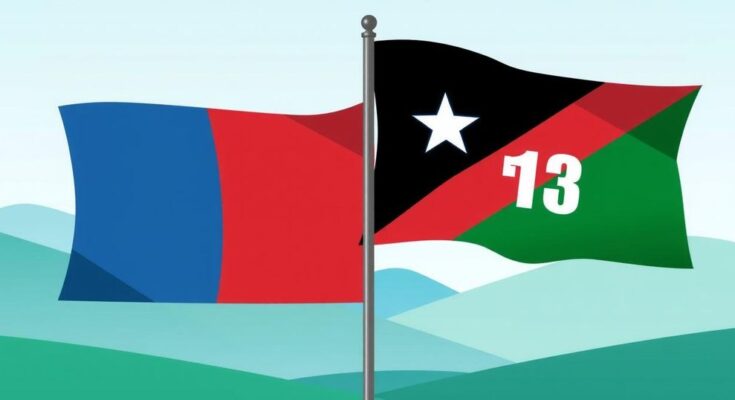The DRC and M23 rebels have confirmed their participation in peace talks in Luanda, Angola, aimed at resolving ongoing conflicts exacerbating the humanitarian crisis. This comes after previous refusals of negotiations by the DRC government. The conflict has led to significant displacement and loss of life in the region, where both parties face international scrutiny regarding human rights violations.
The Democratic Republic of the Congo (DRC) and the Rwanda-supported M23 rebel group have both confirmed their participation in upcoming peace talks in Luanda, Angola. This decision comes after previous rejections from the DRC government for direct negotiations. The M23 rebel group has gained control over significant regions in the DRC’s eastern areas since early this year, leading to a substantial humanitarian crisis.
A delegation representing the DRC has arrived in Luanda for the negotiations scheduled for Tuesday, as stated by a spokesperson for President Felix Tshisekedi. Prior to this, Tshisekedi had declined to engage in talks with the M23 rebels due to the complex background of the conflict. The M23 group has also sent its representatives, as confirmed by spokesperson Lawrence Kanyuka via social media.
Angola has been working to mediate a ceasefire for several months while negotiations were previously disrupted due to Rwanda’s insistence on direct dialogue between the DRC and M23, which the DRC government opposed. Recently, Angola announced the scheduling of direct talks. M23 leader Bertrand Bisimwa indicated that the rebel group’s actions have led to this negotiation opportunity, asserting that “peace begins with dialogue. The sooner we talk, the sooner peace becomes a reality.”
The humanitarian crisis in the eastern DRC has worsened since the M23 launched an offensive earlier this year, capturing crucial cities like Goma and Bukavu. This region, rich in minerals, is plagued by conflict involving approximately 100 armed groups. The violence has resulted in over seven million displaced individuals and approximately 7,000 reported fatalities
The M23 is estimated to have about 4,000 Rwandan soldiers assisting them, according to the United Nations. Rwanda contends that its military involvement is a defensive measure against the Congolese army and groups that threaten Kigali’s security. This ongoing conflict is deeply rooted in the legacy of the 1994 Rwandan genocide and the struggle over the DRC’s mineral wealth. The UN Human Rights Council has initiated a probe into alleged atrocities committed by both sides, including grave human rights violations.
The upcoming peace talks in Angola signify a critical step towards addressing the long-standing conflict between the DRC government and the M23 rebels, which has profoundly impacted millions of lives. The dialogue could pave the way for lasting peace in a region long troubled by violence rooted in historical injustices and competition for resources. The international community must closely monitor these negotiations to ensure progress towards humanitarian relief and stability in the eastern DRC.
Original Source: www.aljazeera.com




